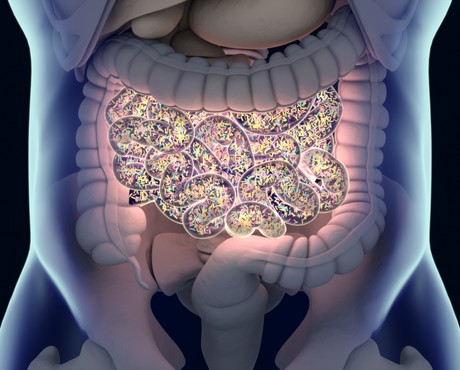What's in your gut?

Gastrointestinal disorders, infections and immune conditions may be easier to treat now that scientists working on the gut microbiome have discovered more than 100 new species of gut bacteria.
Trillions of microbes in the human intestine form a huge ecosystem known as the gut microbiome. This is known to impact human health, with imbalances contributing to diseases such as inflammatory bowel disease, irritable bowel syndrome, allergies and obesity. However, many species of gut bacteria are difficult to grow in the laboratory meaning there is a huge gap in our knowledge of them.
Researchers from the Hudson Institute of Medical Research and Monash University, the Wellcome Sanger Institute and EMBL’s European Bioinformatics Institute studied faecal samples from 20 people from the UK and Canada, and grew and DNA sequenced 737 individual bacterial strains from these. Analysis revealed 273 separate bacterial species, including 173 not previously sequenced and 105 that had never been isolated.
“This study has led to the creation of the largest and most comprehensive public database of human health-associated intestinal bacteria. The gut microbiome plays a major role in health and disease. This important resource will fundamentally change the way researchers study the microbiome,” explained Dr Samuel Forster, first author on the paper. “The new culture collection and reference genomes will make it much cheaper and easier for researchers to determine which bacteria are present within communities of people and research their role in disease.”
To understand how the gut microbiome impacts on human health, scientists have previously sequenced the DNA from mixed samples of gut bacteria to try to understand each component, but they have lacked individually isolated bacteria and reference genomes from them. Reported in Nature Biotechnology, the new resource will support the development of new diagnostics and treatments for certain diseases.
Dr Trevor Lawley, senior author from the Wellcome Sanger Institute, said: “This culture collection of individual bacteria will be a game changer for basic and translational microbiome research. By culturing the unculturable, we have created a resource that will make microbiome analysis faster, cheaper and more accurate and will allow further study of their biology and functions. Ultimately, this will lead us towards developing new diagnostics and treatments for diseases such as gastrointestinal disorders, infections and immune conditions.”
Call for comment on infant formula products
FSANZ is calling for comment on an application to permit a new GM source organism for the...
GNT Ventures seeks startups to shape food colour innovations
Plant-based food colour supplier EXBERRY has launched an independent investment firm which will...
Fermenting future food sources for Australia
Forming a National Food Plan and appointing a food minister are among the key recommendations of...














